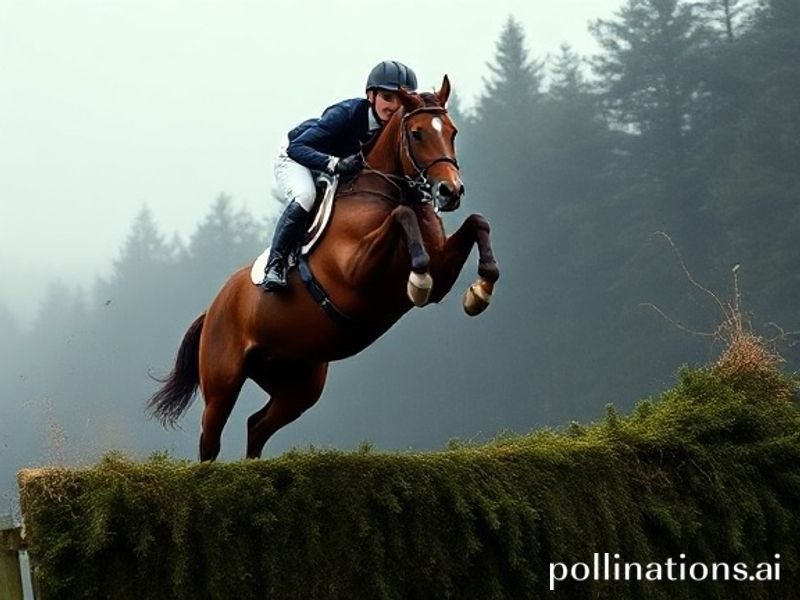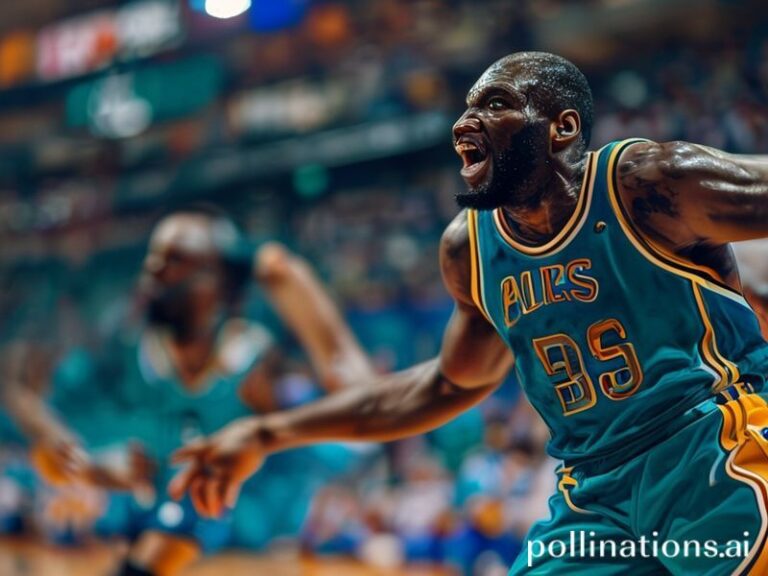Ros Canter’s World Title: How a Lincolnshire Long Shot Just Outflanked Global Sports Geopolitics
Ros Canter: How One Woman and One Horse Are Quietly Redrawing the Map of Global Sport
By the time most of us had finished our second coffee and begun pretending to answer emails, Ros Canter was already airborne somewhere above the dew-soaked turf of the Pratoni del Vivaro. The 32-year-old from Lincolnshire—population roughly equivalent to a medium-sized Shanghai apartment block—had just delivered Britain its first individual World Eventing Championship in nearly two decades. Somewhere in a glass tower in Lausanne, an IOC accountant did the mental math on fresh Team GB medal projections and allowed himself the ghost of a smile.
On paper it reads like a quintessentially parochial triumph: small-town rider, small-ish horse (Lordships Graffalo is a modest 16.2 hands, practically a Shetland pony by warmblood standards), small island giddy at having beaten the Germans at their own game. Yet peel back the tweed and you’ll find a case study in how globalization has quietly militarized even our most genteel pastimes. Canter’s saddle was designed in Germany, her stirrup leathers tanned in Italy, her horse’s feed balanced by a Dutch nutritionist who moonlights advising UAE endurance stables where the camels are treated better than the grooms. The data-crunching software that plotted her optimum gallop lines was coded in Silicon Valley, then adapted by Swedes who originally wrote it for Volvo crash-test dummies. All so a woman who still answers to “Rosie” could gallop past flags she’s never seen outside of Eurovision.
The wider significance? Start with the geopolitics of equine passports. Graffalo’s paperwork is thicker than a Russian oligarch’s visa application: vaccinations logged to the millilitre, bloodlines traced back to ancestors who probably carried Teutonic knights. The horse’s very mobility is a triumph of late-capitalist paperwork—try moving a tonne of sentient muscle across five borders in a lorry with hay-scented suspension and see how quickly the WTO treaties start looking useful. Eventing, that quaint relic of cavalry officers who couldn’t decide between fox-hunting and mortal combat, has become a supply-chain logistics masterclass. If Amazon ever decides to deliver live animals by drone, the blueprint will be signed off by a three-day-eventing course designer.
Meanwhile, nations who once measured prestige in aircraft carriers now brag about their five-star event entries. China has been buying Irish-bred horses by the container-load; Saudi venture funds are snapping up European studs like distressed London real estate. Even the Norwegians—previously known for skiing and existential dread—have built an arena that looks like a Bond villain’s lair carved into a fjord. The sport’s vocabulary may still be tweedy, but the money is pure Davos. When Ros Canter flew the final fence in Italy, the ripple was felt in bank vaults from Lexington to Dubai: another data point proving that soft power now travels on four legs and eats 15,000 calories a day.
And then there’s the matter of morale. In a week when Britain’s fifth prime minister in six years was learning which cupboard hides the good biscuits, Canter’s victory offered a rare national serotonin hit untainted by inflation or sewage scandals. The tabloids dusted off the “plucky Brit” template; the Royal Family posted a horse emoji with the enthusiasm of people who actually know one end of the animal from the other. Across the Channel, the French shrugged—standard operating procedure—while the Germans muttered about unfair terrain, which is German for “we came second.” In Kyiv, where eventers now train in arenas intermittently blacked out by Russian missiles, riders watched on generator-powered phones and allowed themselves 90 seconds of vicarious flight. Even the planet’s grimmer headlines paused for breath.
So when you next see a headline about supply-chain bottlenecks or diplomatic summits that achieve less than a soggy canapé, remember Ros Canter: proof that a woman, a horse and a mountain of paperwork can still vault the fences we keep erecting between nations. For one luminous circuit of the Pratoni course, the world was reduced to rhythm, scope and the improbable idea that cooperation—like a 600-kilogram flight over immovable obstacles—is possible. Then the bell rang, the crowd cheered, and the commentators went back to arguing about Brexit. The horse, naturally, remained the smartest participant in the entire affair.







